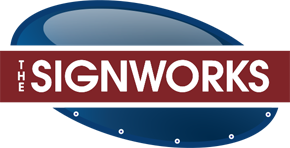Selecting Domain Names
Deciding to go online is definitely an important step; but it's only one of many. After making the initial decision to go "virtual," the next and possibly most important step is choosing a name for your Web site. In Web parlance, this is referred to as selecting a domain name. Name recognition and recall is an e-commerce imperative. The following are some tips for selecting an effective domain name for your organization or business:
Keep it Legal
Domain name length should fall somewhere between 2 and 63 characters, not including the top level extension -- traditionally .com, .net or .org. The only acceptable characters are the letters A-Z, the numbers 0-9 and hyphens. However, domain names cannot start or end with a hyphen. As well, domain names are not case sensitive and are generally displayed in all lowercase letters.
Once you've selected a name and confirmed its availability, you must also make sure it doesn't infringe on any existing trademarks or intellectual property. Simply being available does not make a domain name legal.
Make it Appropriate
Consider your target audience when selecting a domain name. What is the purpose of your Web site? What tone should it take? Perhaps it should be formal, or informative, or even sarcastic. Consider whom you intend to attract and what will capture their attention.
Keep it Simple
Keep your domain name short and sweet. Generally, a shorter domain name is easier to remember, write down or repeat frantically in your head while sprinting to the nearest computer. Remember, as length increases, so does customer confusion. That being said, try to restrict the domain name to one, two or three words maximum. Try to select easily-spelled, easily-pronounceable words with few syllables. Although they're available, avoid using hyphens to separate words. Also, avoid acronyms unless they're part of your name. Whereas "qmfc" is short, may not be easy to remember.
Make it Evocative
Domain names are especially effective when they create strong visual associations -- strong and relevant visual associations. Name recall is promoted when a consumer can connect a specific and unique image, memory, scent or individual with your domain name. Take the word "banana" for example. You know how bananas look, smell, taste and feel. Make it something concrete and certain. Like www.deathandtaxes.com.
Make it Easier
To facilitate your search, log on to Network Solutions (www.networksolutions.com), or use a program such as Mozzle (www.mozzle.com), or Domain Questor (www.internet-soft.com). These services, as well as many available freeware and software tools, can be invaluable. For example, Mozzle contains an automatic thesaurus, acronyms, alternative domain name spellings, trademark searches, pattern searches and so on.
Make it Universal
Be wary of ethnocentrism when creating a domain name. If your site is targeted to a global audience, take into account the fundamental linguistic and cultural contrasts that distinguish your market segments. This includes slang usage, spelling discrepancies and other various geographic idiosyncrasies.
Make it Unique
Some domain names betray all practical advice and yet are still tremendously effective. Why? Because they're unique and thus, easily remembered. Ultimately, uniqueness is perhaps the most influential predictor of domain name success. This is especially true for small to mid-sized businesses who lack instant brand recognition. The key, however, is to be both unique and relevant. Remember, like any brand name, logo or trademark in the real world, a domain name is your identity on the Web. Furthermore, if created correctly, it is a moniker that customers will forever associate with your product, service or company.


